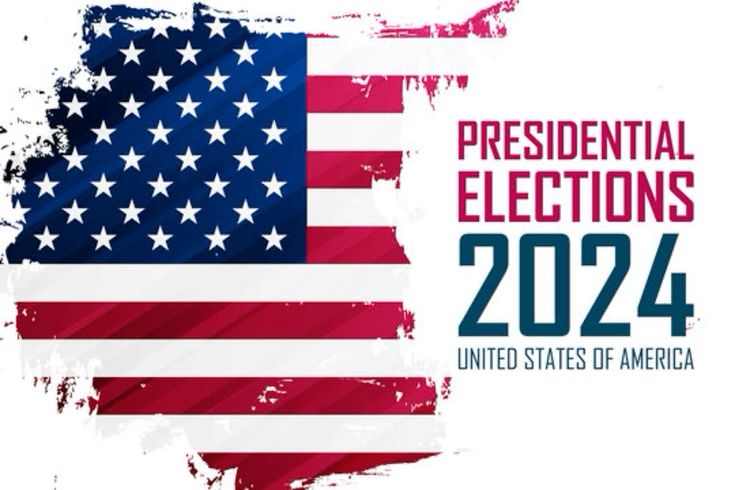U.S. Presidential Election (2024): Key Insights and Significance
The 2024 U.S. presidential election is one of the most anticipated and consequential political events in the United States and the world. It will determine not only the direction of U.S. domestic policy but also shape global politics, economics, and security dynamics for years to come. With key issues such as the economy, climate change, healthcare, foreign policy, and national security at the forefront, the election promises to be a pivotal moment in American history.
Here’s a deep dive into the 2024 U.S. presidential election, its significance, key candidates, and potential implications.
Background and Context: U.S. Presidential Election
The 2024 election will be held on November 5, 2024, with voters choosing between the two major party candidates—the Democratic incumbent president, Joe Biden, and the Republican challenger, likely to be Donald Trump or another high-profile Republican candidate. The election comes at a time of significant domestic and international challenges, including the ongoing Russia-Ukraine conflict, climate change, economic uncertainty, and the aftermath of the COVID-19 pandemic.
Key Issues for Voters: U.S. Presidential Election
The U.S. presidential election is influenced by various issues that resonate deeply with voters across the country. Some of the most important topics in 2024 include:
- Economic Recovery and Inflation: U.S. Presidential Election
- As the U.S. economy continues to recover from the impacts of the COVID-19 pandemic, voters are keenly focused on economic growth, job creation, and inflation rates. The cost of living, particularly rising prices for food, gas, and housing, will be a central issue in the campaign.
- Candidates will propose solutions for economic stimulus, wage growth, and addressing wealth inequality. How the next president plans to stabilize and strengthen the economy will be crucial to winning over voters.
- Healthcare: U.S. Presidential Election
- Healthcare remains a deeply divisive issue in the U.S. Many Americans are concerned about the affordability and accessibility of healthcare services. The Affordable Care Act (Obamacare) continues to be a point of contention, with some Republicans advocating for its repeal and replacement, while Democrats aim to expand healthcare access.
- A major area of debate will be Medicare for All versus a more market-driven approach to healthcare.
- Climate Change and Environmental Policy: U.S. Presidential Election
- As the effects of climate change become more evident, including extreme weather events and rising sea levels, environmental issues are expected to play a significant role in the election. Voters will look for candidates who prioritize climate action and sustainable energy solutions.
- Joe Biden’s administration has emphasized the need for clean energy investments, while Republicans may focus on energy independence and a more gradual transition from fossil fuels.
- Foreign Policy and National Security: U.S. Presidential Election
- The Russia-Ukraine war is a key issue for the U.S. in 2024, as it has profound implications for global stability. Candidates will address the U.S.’s role in the ongoing conflict, as well as broader international relations, including with China, NATO, and the Middle East.
- National security issues, including cybersecurity, defense spending, and the military’s role in counterterrorism, will be significant themes in the election.
- Social Justice and Racial Equality: U.S. Presidential Election
- Issues related to race, inequality, and justice reform remain central to the national conversation. The 2020 Black Lives Matter protests highlighted ongoing disparities in policing and the criminal justice system. In 2024, these issues will continue to be crucial for many voters, particularly in urban areas.
- Immigration: U.S. Presidential Election
- Immigration policy will be another critical issue, especially with concerns over border security, asylum seekers, and the status of undocumented immigrants. Both parties have differing views on the best approach to reforming immigration law.
Candidates and Campaigns: U.S. Presidential Election
Joe Biden (Democratic Party); U.S. Presidential Election
- Age: 81 years old (as of 2024)
- Incumbency: As the sitting president, Joe Biden is seeking re-election for a second term. Biden’s presidency has focused on recovery from the COVID-19 pandemic, infrastructure investments, and climate change action. His handling of the Afghanistan withdrawal and his support for Ukraine in the Russia-Ukraine conflict have been key moments of his presidency.
- Campaign Focus: Biden’s re-election campaign will focus on continuing his vision for building a fairer economy, tackling climate change, and ensuring healthcare for all. He will also emphasize his foreign policy successes, particularly his efforts to rally NATO against Russian aggression.
- Challenges: Biden’s age and approval ratings are significant challenges for his campaign. Some voters may question whether he can effectively lead for another four years, especially given his advancing age. Additionally, the continued economic challenges and rising inflation could pose hurdles for Biden’s re-election bid.
Donald Trump (Republican Party);U.S. Presidential Election
- Age: 78 years old (as of 2024)
- Political Background: Donald Trump, the 45th president of the United States, is seeking to return to the White House after losing the 2020 election to Joe Biden. Trump remains a highly polarizing figure, with significant support among Republicans but strong opposition from Democrats and independents.
- Campaign Focus: Trump’s campaign will likely focus on restoring American greatness, cutting taxes, and taking a tough stance on immigration. He is expected to advocate for reducing government regulations and reinvigorating the U.S. economy through a more populist, America-first approach.
- Challenges: Trump faces legal challenges related to the January 6th Capitol riots and ongoing investigations into his business dealings. These legal battles could impact his ability to effectively campaign and may energize opponents who view him as unfit for office.
Other Republican Candidates: U.S. Presidential Election
While Trump is the likely Republican nominee, there are several other high-profile Republicans who could challenge him, including Florida Governor Ron DeSantis, former Vice President Mike Pence, and other potential candidates such as Nikki Haley and Ted Cruz. These candidates may offer alternative visions for the future of the Republican Party and could appeal to voters seeking a change from Trump’s leadership.
Key Factors Influencing the Election: U.S. Presidential Election
- Voter Turnout: The U.S. presidential election is heavily influenced by voter turnout, particularly among younger voters, minority communities, and suburban women. The mobilization of these groups will be crucial for both candidates.
- Media Influence: Social media and traditional media play a significant role in shaping public opinion. Misinformation and media narratives will likely be a factor in 2024, especially as social media platforms are increasingly scrutinized for their role in influencing elections.
- The Electoral College: The U.S. presidential election is decided by the Electoral College, not the popular vote. Swing states such as Pennsylvania, Michigan, Wisconsin, and Florida will play a decisive role in determining the outcome.
- Supreme Court and Legal Challenges: Legal issues, including the status of abortion rights after the overturning of Roe v. Wade, may drive voter turnout and shape policy discussions. The decisions made by the U.S. Supreme Court in the years leading up to the election will continue to influence the political landscape.
Significance of the 2024 U.S. Presidential Election
The 2024 election will not only impact the future direction of the United States but will also have global ramifications. The U.S. remains a global superpower, and the policies set by the next president will influence international trade, military alliances, climate change initiatives, and geopolitical stability.
- Domestic Impact: The future of healthcare, economic recovery, social justice, and civil rights will be influenced by the outcome of this election.
- Global Impact: On the world stage, the next president’s approach to foreign policy—especially in relation to Russia, China, and NATO—will be crucial in shaping global security dynamics.
Conclusion; U.S. Presidential Election
The 2024 U.S. presidential election is shaping up to be one of the most pivotal in recent history. As the nation grapples with deep divisions, economic recovery, climate change, and international challenges, the choices made in the 2024 election will have long-lasting implications for both the United States and the world. The election promises to be an intense contest, marked by passionate debates, a range of policy proposals, and high stakes for the future of American democracy.










